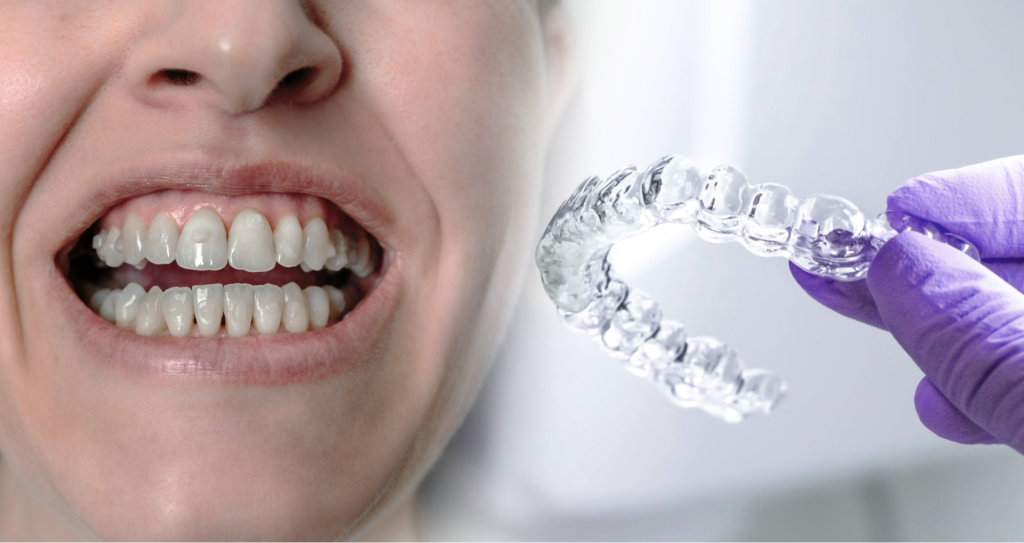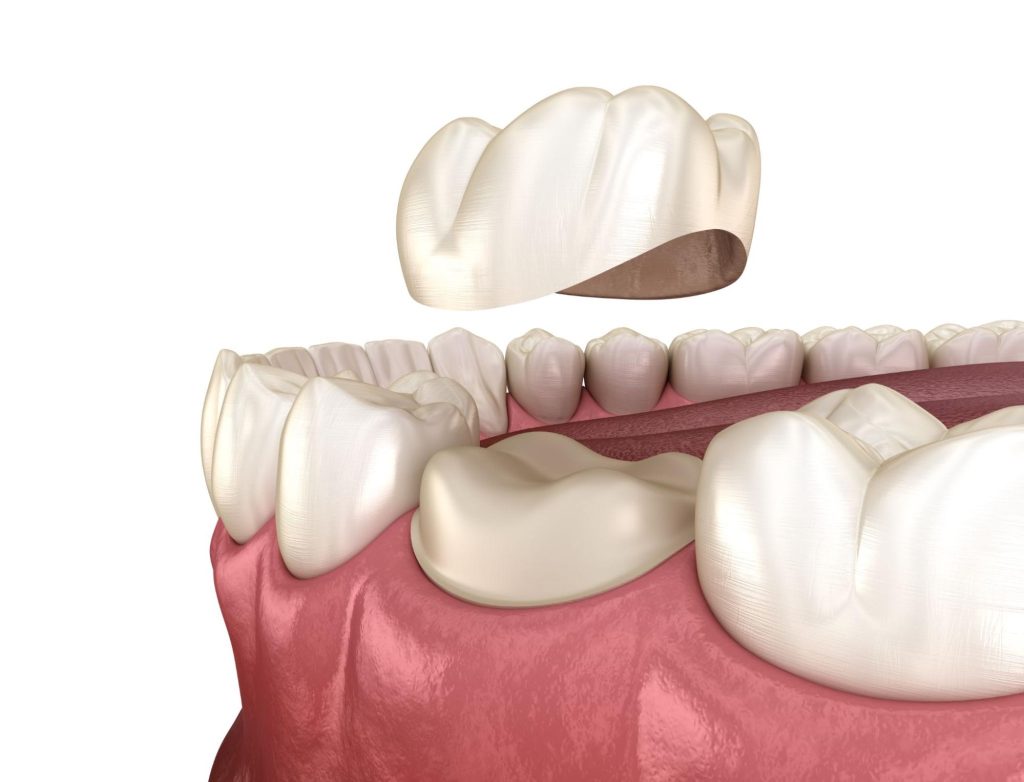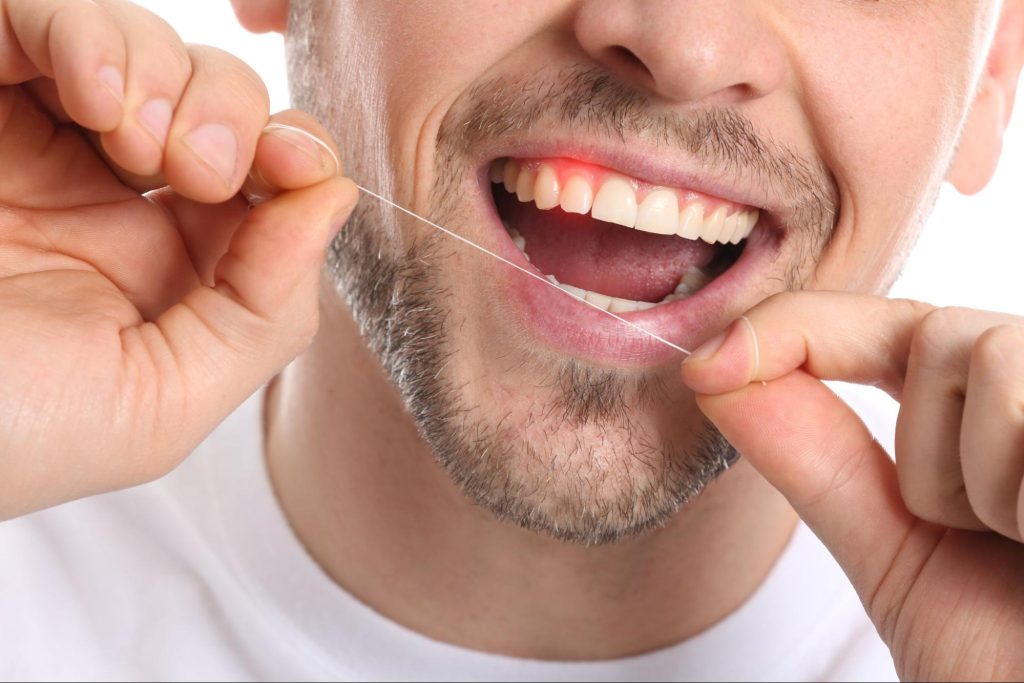Getting 8 hours of sleep is crucial to functioning properly throughout the day. But not surprisingly, most of us struggle to get this recommended amount of sleep without tossing and turning throughout the night.
Stress plays a major role in sleep disturbances – but dental disorders can too. Grinding your teeth and clenching your jaw can result in pain that keeps you up, making it hard to focus throughout the day. A nightguard for sleeping can prevent this pain, allowing you to sleep better.
Why Do People Wear Mouthguards?
Mouthguards are worn by people who participate in contact sports like soccer or boxing. These are often referred to as sports nightguards. Sports mouthguards protect their teeth from injuries during play.
Many dental injuries derive from participating in contact sports or play that involves tossing hard objects. According to Better Health, 44% of all dental injuries involve cycling, skating and scooter riding. Another 14% occur when participating in sports such as basketball, cricket, hockey, boxing and soccer.
Mouthguards are available in sporting goods stores but are also crafted by dentists. Store-bought mouthguards are sold as boil-and-bite or stock. Boil-and-bite mouthguards offer more protection than a stock guard since they are fitted to your teeth. However, both options are usually plastic and ill-fitted. According to Better Health, mouthguards custom fit by a dentist offer even better protection.
Dental mouthguards reduce the risk of the following dental injuries:
- Cut lips, cheeks, gums, tongue
- Chipped teeth
- Broken teeth
- Knocked out teeth
- Broken jaw
Properly fitted mouthguards allow for normal speech and don’t cause gagging. They also enable the wearer to breathe normally.
What Is the Difference Between a Night Guard and a Mouth
Guard?
Mouthguards can be worn any time of the day but are specifically designed to be worn during contact activities. A night guard, also called a bite splint, is a mouthguard for sleeping. They are thinner than traditional mouthguards and resemble retainers. Night guards are made from a soft, flexible material but may be offered in acrylic – these are called hard night guards. Like traditional mouthguards, a mouthguard for sleeping can be classified as over-the-counter or custom-made.
Why Do Dentists Recommend Night Guard?
A mouthguard for sleeping is often prescribed for teeth grinding (bruxism), which could result in cracked teeth or gum and tongue injury. Mosman Fine Dental designs customized night guards that can be worn on both sets of teeth or just one, depending on the issue presented.
Store-bought nightguards are not designed to fit snugly to the teeth since they are created from a generic tooth model. This increases the risk of bacteria seeping into the guard, causing gum inflammation or dental carries over time. Custom night guards are moulded to the teeth allowing for a better fit, thereby reducing these risks.
Other conditions that benefit from a nightguard for sleeping are:
- Temporomandibular Joint Dysfunction (TMD)
- Jaw clenching
People with TMD can benefit from hard night guards. These mouthguards are crafted from acrylic and work to reposition the jaw, preventing injury.
How Do I Know If I Need Night Guard or Mouth Guard?
Consider wearing a mouthguard if you play contact sports or work in a high-risk occupation that increases the likelihood of dental injury. The Australian Dental Association suggests wearing a mouthguard to anyone who plays a sport that relies on “intentional collision” to win the game. Conversely, not wearing a mouthguard can cause devastating dental injuries requiring extensive repair treatments.
If you’ve been diagnosed with bruxism or TMD or clench your jaw in your sleep, wearing a nightguard for sleeping can reduce the risk of further injury. It is not a cure for any of these conditions but rather one aspect of treating them. If you haven’t been diagnosed with TMD or bruxism, but you notice any of the following symptoms, speak to a doctor or consult your dentist to see if a nightguard for sleeping is right for you:
- Dull headache when you wake up
- Tooth damage or repeated loss of dental fillings upon awakening
- Sore jaw muscles
- Trouble fully opening the mouth
Contact Our Dentists
It is imperative to wear a mouthguard that fits appropriately to reduce the risk of dental injuries. After an initial consultation, a specialist at Mosman Fine Dental can recommend a custom-fitted nightguard for sleeping or mouthguard for playing sports.
Our nightguards perfectly fit your bite, significantly reducing the risk of severe jaw fractures or potentially hazardous dental trauma. We also offer cosmetic treatment to correct chipped or cracked teeth due to impact injuries. Book an appointment today to see why many people choose Mosman Fine Dental for their dental care.



